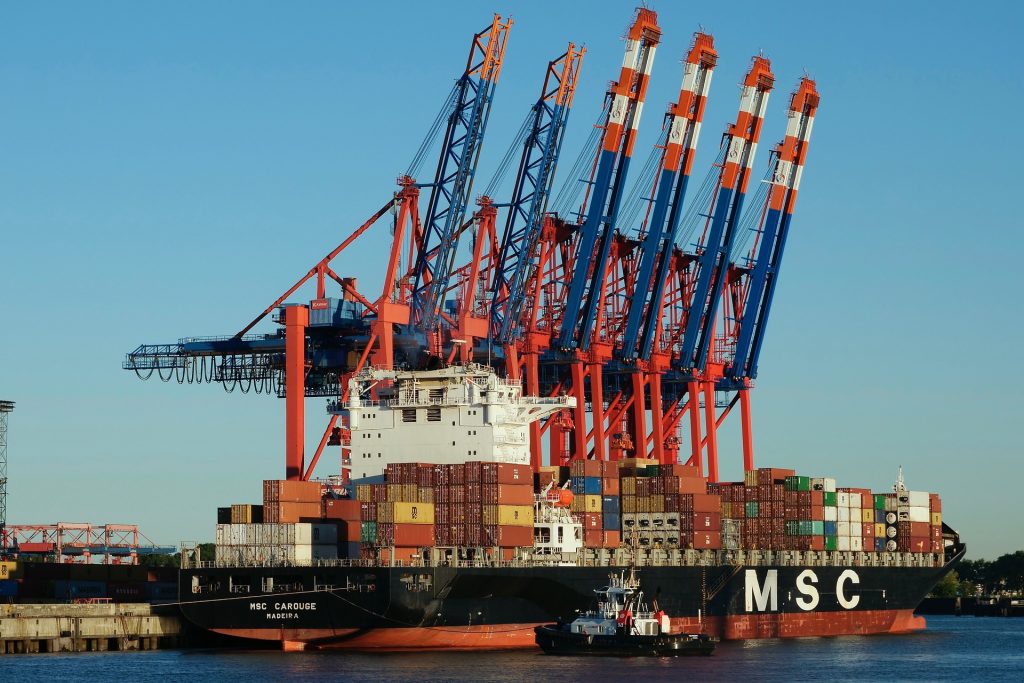Mediterranean Shipping Company (MSC), the world’s biggest sea cargo line, signaled that it has an optimistic view of the global trade demand. While talking to CNBC in this regard, Soren Toft, the CEO, said with caution that this might take months to bounce back.
CEO Soren Toft tells CNBC that despite inflation, MSC sees the U.S. economy “as very strong and very positive.”
According to Statista, this Switzerland-based shipping firm, also perceived as the standard benchmark for global trade, commands a major 17.5 percent market share in the cargo container traffic.
Soren told CNBC that the cargo mammoth is optimistic about the financial year 2022-23. Even though the market has been severely affected by a significant drop in global demand and serious supply chain disturbances over the past few quarters, the future doesn’t look bleak.
Soren Toft told CNBC“I would say we are moderately optimistic that the world will resume again. I think when we come to the middle of this year, we’ll probably start seeing trade move”.
Toft said that there is lesser trading volume due to higher stockpiles in the European region and North America. So once those reserves start reducing, cargo demand will surge.
While talking about the US, he said the economy still looks healthy. It is a net energy exporter. He presumes that their controlling inflation measures have proved to be fruitful, and the employment drives are in a positive trend. Their stance on the US is very positive and robust.
Data from SONAR FreightWave presented a slight uptick in global cargo demands after the Chinese New Year. Recent data from the Chinese manufacturing economy also showed a revival from constriction to extension.
Toft has noticed an uptrend in China to Europe trade routes representing a strong consumer demand. China-to-Europe cargo supplies are witnessing healthy figures. He assumes that such trading will carry on for several months.
Ocean Freights
Manufacturing orders directly influence cargo bookings. Recently, weakening consumer demand and near-all-time high inventory levels forced the US retailers to back off from giving in manufacturing orders by almost 40 percent. Consumers are battling with record-high inflation, and the non-availability of warehouses is pushing freight rates near all-time highs.
After the mild revival of global trade, one of the biggest burdens on products, the ocean cargo charges have fallen back to their pre-pandemic levels.
Logistics managers are worried about a foreseeable choking of the supply chain due to a domino effect of cargo cancellation. The muted demand and weaker prices have forced ocean carriers to cancel sailings. Reduced sailing ventures lead the shippers to decrease the amount of vessel capacity to be loaded on a container. Now, ocean freights have started to decline orders, which leads to a postponement of vessels loaded with goods for the current or later season.
HLS Transpacific, a shipping company, wrote that their carriers are unwillingly put on hold because of fragile demand from the Asian region with signals of revival in demand.
On the contrary, Toft said they are looking at the markets moving towards normalcy. But there is a possibility of volatility at extreme levels depending on the nature of demand.
MSC contrarian play
MSC has widened its size of fleet at a time while declining ocean cargo orders cancel sailings. MSC is on an acquisition spree of second-hand charter vessels and investing in new container vessels. It is expanding its fleet with a combination of vessels to be ready to grab the opportunity when the market rebounds.
Freight outlook on Asia & US
MSC is expanding its presence in the United States by investing in land-based transportation models like ports, warehouses, etc.
Terminal Investment (TIL), a port operating subsidiary of MSC, is building up its American East Coast port Portfolio by starting new terminals for containers in New Orleans and the Port of Baltimore.
MSC is diversifying in other developing countries in the South Asian region. It has invested in building ports in Vietnam, a hot location for companies that are shifting their manufacturing bases from China.
Toft added that he views the world as moving toward a more dispersed supply chain model. Goods would be obtained from various countries like China, India & South Asian countries like Vietnam, Singapore, Philippines, etc.
